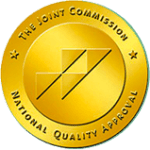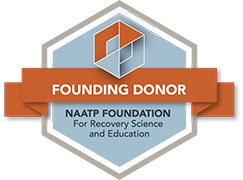Acceptance, Gratitude and Strength: Positive Messages Received in Recovery
When we’re in the throes of addiction, we often lose sight of what’s real. We become confused about our sense of purpose in life, sometimes with the belief that substances are all we’re meant to seek out. We may lose aspects of our lives that were once near and dear to our hearts – such as our relationships, hobbies, professional status and more – and before we know it, we’ve entered a downpour of self-loathing, criticism and bitterness that we’re unsure how to get out of. Recovery is challenging for this very reason – it forces us to face these demons and come to grips with the past. It can be one of the most bittersweet moments of recovery because while there is pain in facing the truth, there is also strength in taking responsibility over our actions and choosing to grow from it.
It’s All About Perception
Lindsay Wagner, American film actress, author, coach and adjunct professor, once stated, “When we shift our perception, our experience changes.”
It’s a natural tendency for our mind to focus on the negatives. If you’ve ever focused on something negative that someone has said to you over something positive that happened during your day, or if you’ve harbored on an opportunity that you’d missed compared to all of the opportunities you’ve met, you can certainly relate to the proneness towards negativity. Why do we do this?
Forbes Magazine states that while we’re essentially hardwired to look for the negatives (as a form of protecting ourselves), the neuroplasticity in our brain still gives us hope that we can “rewire” our thinking towards more acceptance, gratitude, and strength. If we can learn to see each day from a more positive perspective, we’ll find that our brain is more adept to seeking out positive elements of our daily lives that reinforce that belief – and that’s what can transform a life filled with pessimism to one bursting with joy potential.
Put It into Practice
How can we begin to fill our lives with more positivity? Author Shawn Achor of his book titled The Happiness Advantage, suggests implementing the following as part of your daily life:
- Assess what you’re noticing – when we start becoming investigators of our own thoughts, we begin to recognize patterns that are either lifting us up or bringing us down. Which side do your thoughts place you on?
- Celebrate small victories – even the small recovery goals that you meet should be recognized. Acknowledge the hard work you’ve been doing and feel proud of yourself for coming this far. These small victories add up and can make a huge difference when it comes to your perspective on life.
- Praise the positive aspects of others – by recognizing the good in others, you’re more likely to start viewing yourself – and life in general – in a more positive way. This can become an incredibly powerful technique to not only changing your perspective to see the good in things, but also to inspire others to do the same.
- Practice greater self-compassion – recovery is a time for self-reflection and learning curves, which can make it easier to criticize yourself. Practice self-compassion by understanding that you’re human. You’re not going to get it right all the time, and this is simply a learning process.
- Cultivate gratitude – at the beginning and end of each day, identify what you’re most grateful for. This will help ensure that you don’t take for granted the beautiful gifts life has given you thus far – and with your mind focused on your blessings, you’ll feel much more motivated in your journey to recovery.
Appropriate Resources to Foster Mental, Physical and Spiritual Wellbeing
There are many beautiful areas of recovery that also foster this type of growth. Mindfulness and meditation, for example, are holistic practices that teach individuals how to focus more on the present moment. In doing this, the wandering mind becomes more capable of reeling in the thoughts and moments that matter – rather than perpetuating that ruthless cycle of negativity that can increase a person’s chances for relapse.
12-Step programs, such as Alcoholics Anonymous (AA) or Narcotics Anonymous (NA), also encourage positive thinking by helping individuals work through what has previously held them back. We can’t find restoration until we do some deep soul work, and 12-Step programs provide a safe space for people to do this alongside others in similar situations. In fact, the following are the basis of the 12-Steps:
- Honesty
- Faith
- Surrender
- Soul Searching
- Integrity
- Acceptance
- Humility
- Willingness
- Forgiveness
- Maintenance
- Making Contact
- Service
It is through these steps that many people explore a heightened sense of connection to others, with a greater sense of purpose. Rather than feeling lost and abandoned, those in recovery can share and learn from others in a setting that promotes healing and growth. Sponsors further support individuals by guiding them through some of life’s greatest challenges, and perceptions become shaped more towards a life of healing as time goes on.
This is the year to change your life from suffering due to the disease of addiction to thriving in the sunlight of the spirit of sobriety. As the world’s first 12-Step treatment center, established in 1939, High Watch Recovery is dedicated to educating patients on 12-Step principles, actions, philosophies, and lifestyles, preparing them to live a happy and healthy sober life after graduating. For information on our continuum of clinical care and our compassionate approach to treatment, call us today: 860.927.3772.








